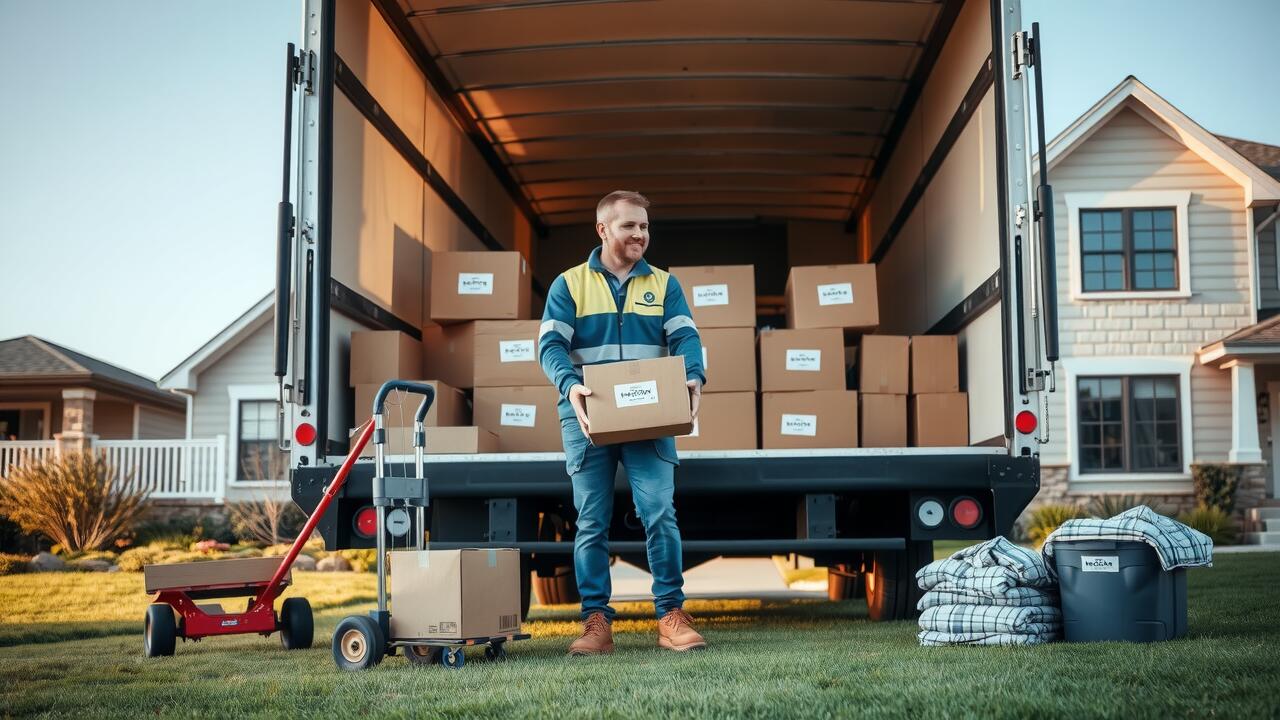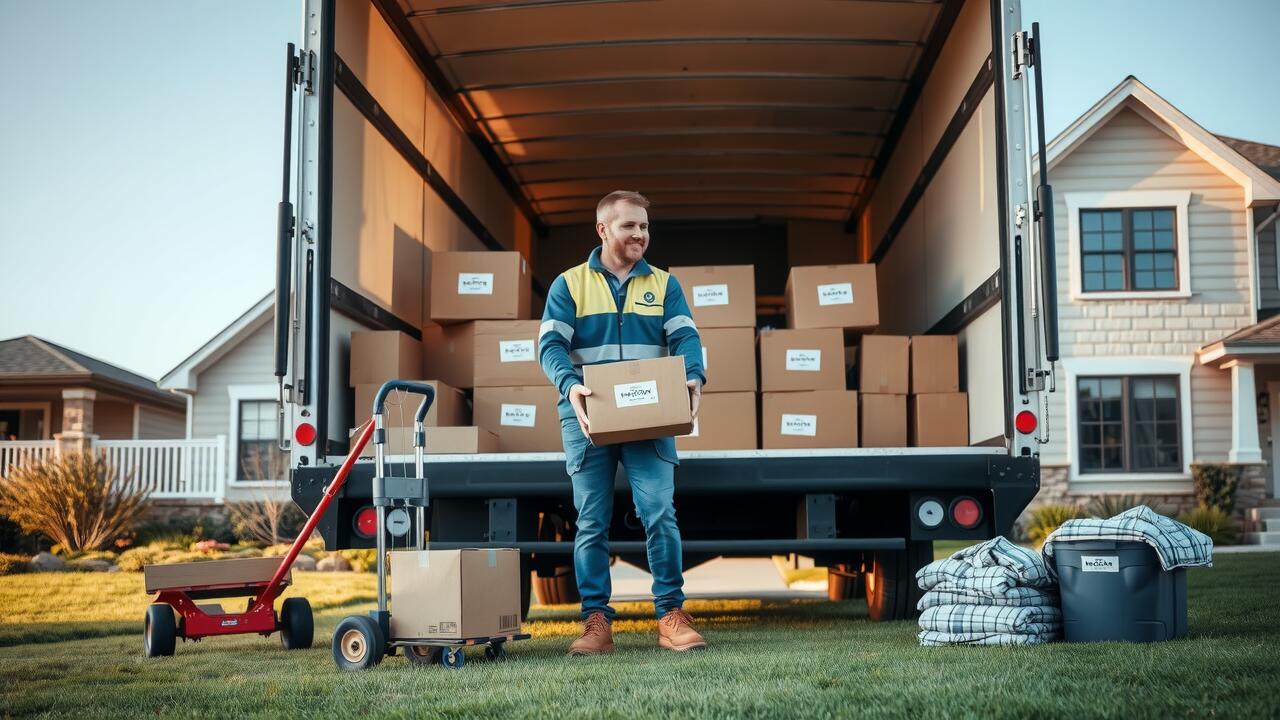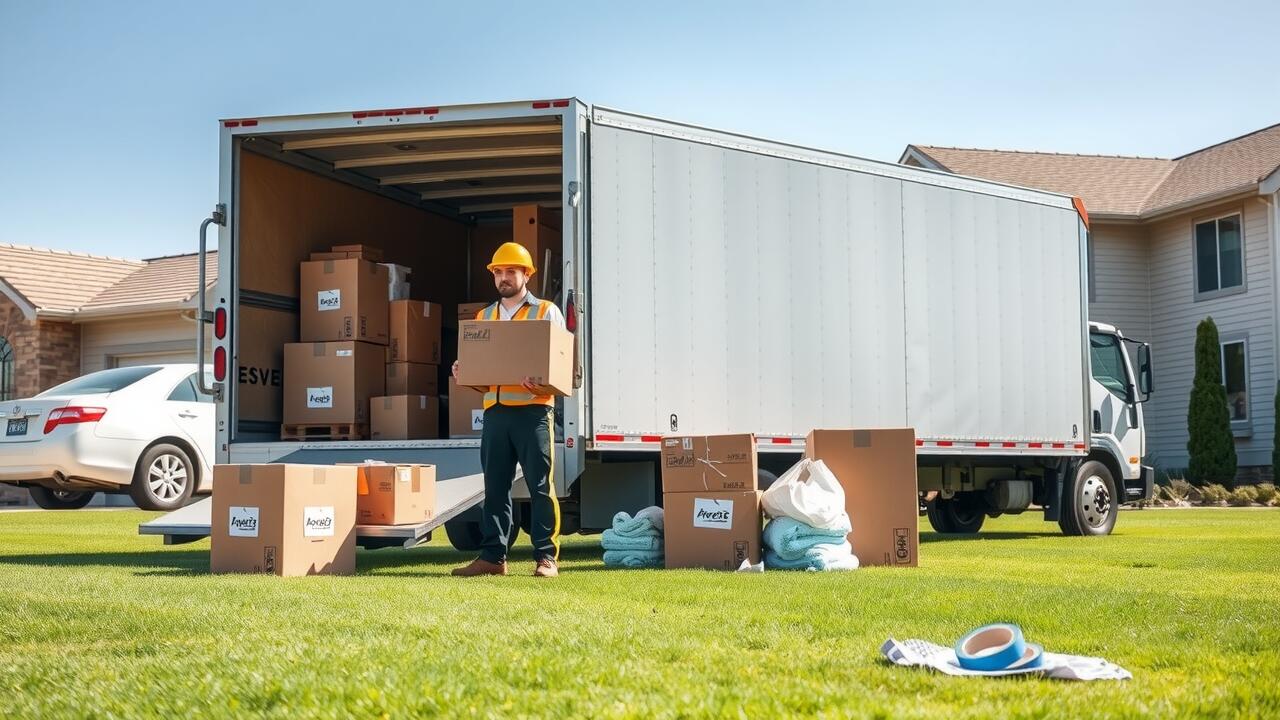
Table Of Contents
Additional Services to Consider
When planning a long-distance move, it is important to factor in additional services that might enhance your experience. Services such as packing, unpacking, and furniture disassembly can significantly ease the transition. Many moving companies, like Westbard, Bethesda Long Distance Moving, offer these options to help streamline the process. While these services often come with extra fees, the convenience they provide may justify the added expense.
Another service to consider is professional handling of specialty items. Items such as pianos, art, and antiques require specialized knowledge for safe transportation. Hiring experts for these delicate belongings can prevent damage and ensure their safe arrival at your new location. Be sure to inquire about the costs associated with these services when budgeting for your long-distance move.
Costs for Insurance and Specialty Items
When planning a long-distance move, it is essential to consider the costs of insurance and specialty items. Many moving companies, including Westbard, Bethesda Long Distance Moving, offer various insurance options to protect your belongings during transit. This protection may come at an additional cost, so it's important to evaluate the value of your items and choose a level of coverage that balances your risk with your budget. Each policy can differ in terms of what is covered, so reviewing the specifics with your moving provider is crucial.
Specialty items often require extra care and handling, leading to increased costs in a long-distance move. Antiques, pianos, and fine art may need customized packing materials and special transportation methods. Discussing these items with Westbard, Bethesda Long Distance Moving can help you understand the additional charges that may arise. Proper budgeting for items requiring extra attention will help prevent unexpected expenses that could strain your overall moving budget.
Travel Expenses During the Move
Planning for a long-distance move requires careful consideration of various travel expenses. Gasoline costs for your vehicle can quickly add up, especially when traversing long distances. It is important to calculate mileage and potential fuel costs based on current gas prices along your route. Additionally, if you are traveling in a rental truck or moving vehicle, check the fuel efficiency ratings to better estimate your overall fuel expenses.
Apart from fuel, you should also budget for food and lodging during the journey. Depending on the length of your move, you may need to stop for meals and overnight stays. Fast food or sit-down restaurants will impact your overall budget. When considering lodging options, weigh the costs of hotels against alternative accommodations like motels or vacation rentals. For those looking to hire professional assistance, local companies such as Westbard, Bethesda Long Distance Moving can provide valuable resources and insight into overall moving expenses.
Budgeting for Gas, Food, and Lodging
When planning a long-distance move, it's essential to account for travel expenses, particularly gas, food, and lodging. Depending on the distance, these costs can add up quickly. Calculating the mileage for your route will help estimate fuel costs. It's important to check your vehicle's gas mileage and current fuel prices along the way. Additionally, consider whether you will need to stop for meals or snacks during the journey. Pack some food to minimize costs, but also budget for dining out, especially if you're traveling over several days.
Finding suitable lodging is another factor in budgeting for a long-distance move. Research hotel options along your route to find accommodations that fit your budget. Booking in advance can sometimes yield better prices. If traveling with family or pets, look for pet-friendly hotels or consider alternatives like vacation rentals. A well-prepared budget for gas, food, and lodging will ease the burden of the move, allowing you to focus on the logistics of settling into your new home, especially when considering services like Westbard, Bethesda Long Distance Moving.
Storage Solutions for Long-Distance Moves
When planning a long-distance move, considering storage solutions can play a crucial role in your overall budget. Many movers may find themselves in need of a temporary space to store belongings during the transition period. This situation can arise if there's a gap between moving out of one home and into another. Local options often include self-storage units and warehouses that can accommodate various items, from furniture to boxes.
For those in the Westbard, Bethesda Long Distance Moving area, numerous storage facilities offer flexible plans. It's essential to evaluate costs associated with these options, including monthly rental fees, potential deposits, and accessibility. Additionally, if you are storing specialty items, you may need to account for climate-controlled units that tend to come at a higher price. A thorough assessment of your storage needs will help you to create a realistic budget for your long-distance move.
Evaluating Costs for Temporary Storage
When planning a long-distance move, considering temporary storage is essential if there are gaps between your departure and arrival dates. Storage costs can vary widely depending on the facility, location, and duration of the rental. Basic storage units typically charge monthly fees, but additional services such as climate control or 24-hour access may come at a higher price. Research local storage options and compare prices to find one that fits your budget and needs.
Westbard, Bethesda Long Distance Moving can assist you with evaluating appropriate storage solutions, especially if you require a short- or long-term stay for your belongings. It's wise to assess the type of items you need to store. Fragile or sensitive items may necessitate a climate-controlled environment. Additionally, some facilities offer features like advanced security measures, which can also impact costs. Prioritizing your storage needs while keeping budget constraints in mind will guide you in making the best decision for your move.
FAQS
What factors should I consider when budgeting for a long-distance move?
When budgeting for a long-distance move, consider factors such as moving company fees, insurance costs, travel expenses (gas, food, lodging), storage solutions, and any specialty items that may require additional handling or services.
How can I estimate moving company fees for my long-distance move?
To estimate moving company fees, get quotes from multiple moving companies based on the distance, the weight of your belongings, and any additional services you may require, such as packing or loading assistance.
What are some common travel expenses I should include in my moving budget?
Common travel expenses include gas for your vehicle, food and snacks during the journey, and lodging costs if you plan to take breaks or stay overnight along the way.
Why should I consider insurance for my move, and what does it typically cost?
Insurance is important to protect your belongings against loss or damage during the move. The cost of insurance varies based on the value of your items and the type of coverage you select, ranging from basic coverage to full-value protection.
What are the benefits of using temporary storage during a long-distance move?
Temporary storage can provide flexibility if your new home isn’t ready yet or if you need to downsize. It can also keep your belongings safe and organized during the transition. Be sure to budget for the costs associated with renting a storage unit.

